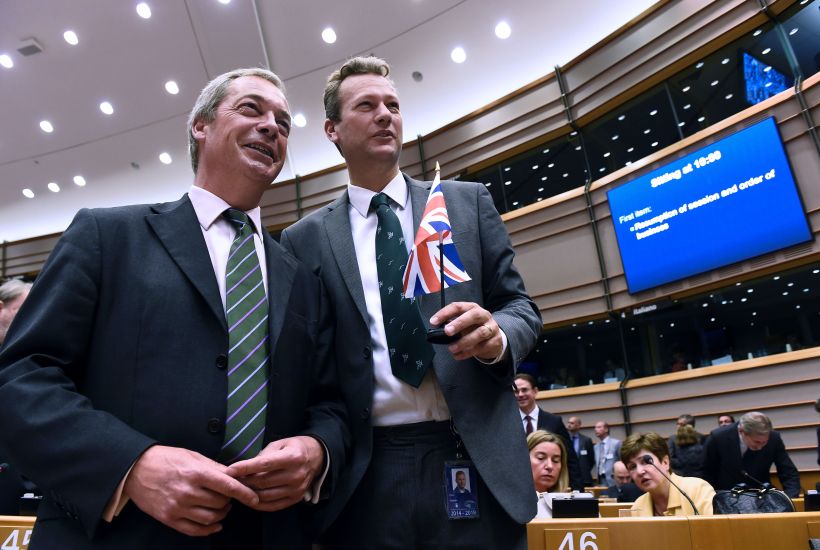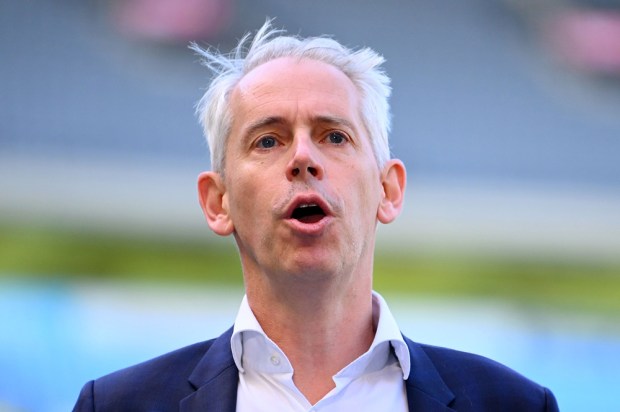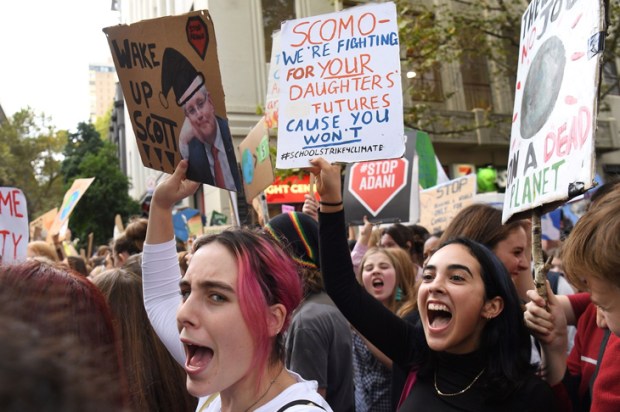The state of politics here, and in the United Kingdom, and in the United States, raises the question of why people go into politics. What is motivating our elected representatives?
Of course there is no one answer to that. People differ. Their motivations differ. And their ability and inclination to navigate the system and get selected to run as a candidate for a plausible party varies too. So this is not really an empirical question. When it is asked it’s really being asked on a normative level, on the ‘ought’ level of why the questioner thinks people should go into politics.
Here’s a better way of approaching the issue. Ask yourself who you think have been the most successful politicians in the post-War period in, say, the UK. Leave aside your political druthers and in my view you’d have to put Maggie Thatcher at or near the top of any such list. She was immensely successful in reforming the British economy (whether you like those reforms, or not). I think you’d also have to put Clement Atlee on the list too, at least as long as there is a British National Health Service. And my third pick would probably be Nigel Farage.
That might strike you as odd at first glance. The other two made it to the top of the slippery pole and became Prime Ministers. Farage never even made it into the Westminster Parliament. He was elected to the European Parliament, but never, despite trying, to the UK Parliament. And yet his influence has been immense. He set up a political party solely to get the Brits out of the EU. At the time he did so, people laughed at him.When he got elected to the European Parliament in Strasbourg as a member of the United Kingdom Independence Party, they laughed at him again. But it was Farage and his party that forced David Cameron to hold the Brexit referendum. And after that Brexit vote, to quote the man himself, ‘they’re not laughing any more’.
And then Farage recently quit politics. He’d accomplished, or at least barring backsliding by the Tories under Theresa May he looks to have accomplished, what he went into politics to achieve. So he quit. On his own terms he was astoundingly successful. If you are a pro-Brexit person like me, then you will also judge Farage to have been a great force for good for the UK, and for the wider democratic world. But notice that I am ranking him as a much more successful politician than David Cameron, than Tony Blair, than John Major, and a coterie of others who made it to the top and became PM, not to mention the myriad of those who only made it into Cabinet and no higher.
Yet in order to agree with me that Nigel Farage has been an incredibly successful politician you implicitly have to agree with me that success should be measured in terms of ‘what did you achieve?’, not in terms of ‘how high up the greasy pole did you climb, and for how long did you keep that chauffeur driven limo?’.
And that takes me to the depressing nature of today’s Australian politics. The disconnect between the voters and the political class is as large as any time I can remember. That’s the case not just here but in the US (witness Trump and Sanders) and in Britain (save for Farage). Part of the problem, in my view, is that the politicians seem not to believe that anything is more important than their ministerial limousines and the extra fat superannuation they get. Nothing is worth resigning over. No principle matters enough to fight for, and try to win over the unconvinced.
Take free speech, the Libs and repealing s.18C. How could someone go around saying what George Brandis did for those years before the 2013 election about how he saw himself as a champion of free speech à la John Stuart Mill and how he would ensure 18C was substantially wound back and then do nothing when Mr Abbott threw in the towel on this one because of his pusillanimous MPs, a feral Senate and the hope of pacifying ‘Team Australia’? Where was the resignation from Cabinet? If it’s a point of principle that important then that’s what voters expect. Or perhaps no principle is all that important, just staying in office.
Or how could someone who rightly said what Mr Brandis did about the appearance of bias on the Human Rights Commission and as regards Gillian Triggs then forsake the entire world of potential Liberals in this country and appoint Ed Santow to replace Tim Wilson? For us voters it is hard to see much principle motivating Mr Brandis’s actions, something that Tony Abbott might have done well to realise before last September.
Of course it’s not just George Brandis. Look at the entire top line of Coalition politicians in this country and it’s hard to know why it is that they entered politics. Was it to be a sliver of a soupçon of a millimetre to the right of the Labor party and so to increase taxes and take away tax concessions just a bit less severely than the Labor Party? Or to undermine superannuation and the general idea of saving for your retirement in the name of a particular concept of ‘fairness’ that was designed and patented in Labor party headquarters? Is that why they got into politics in this country?
Because it sure seems like it to a good many of us observers. The Libs can’t cut government spending; they don’t even try anymore. They don’t stand up and argue about why spending has to be cut now, today, in the present. Instead they offer ‘make believe’ tax cuts to small business that will kick in in a decade, when we all know that’s bunk; they talk the language of the Labor party where an increased tax – because let’s be honest, these superannuation changes are removing a tax concession so as to take more of your money away from you in taxes – is suddenly called a ‘savings’. That terminology might work if you pre-suppose all money is the government’s, some of which it lends to you as a grace and favour perk. But if it’s our money to start with as taxpayers, and the government is taking it from us to get more revenue, then it’s not a saving or savings. Is that why the top Libs went into politics in this country? To debase the political language? To cave in on the core Western value of free speech? To spend like drunken sailors (but a soupçon less than Labor)? To refuse to call Islamic terrorism what it is? The list goes on.
Meantime more than a few of us await the appearance of a few Libs for whom something seems to matter more than advancement, preferment and sucking up to get ahead.
The post Why go into politics? appeared first on The Spectator.
Got something to add? Join the discussion and comment below.
Get 10 issues for just $10
Subscribe to The Spectator Australia today for the next 10 magazine issues, plus full online access, for just $10.
You might disagree with half of it, but you’ll enjoy reading all of it. Try your first month for free, then just $2 a week for the remainder of your first year.














Comments
Don't miss out
Join the conversation with other Spectator Australia readers. Subscribe to leave a comment.
SUBSCRIBEAlready a subscriber? Log in